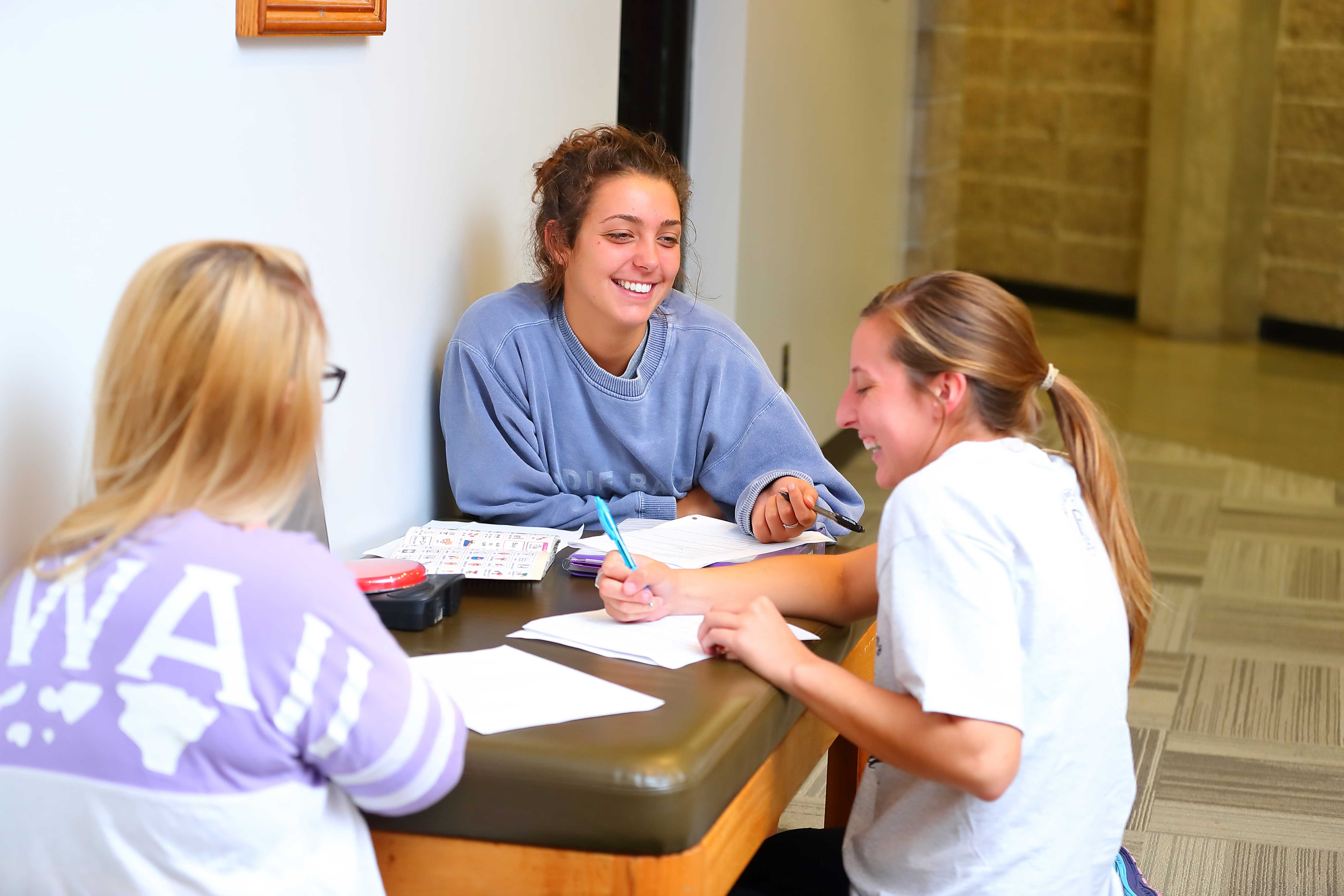Prospective Graduate Students
The graduate program in speech-language pathology at UNI is known around the Midwest, and the nation, for its excellence. In fact, we recently received recognition as a “Best Graduate Schools for Speech-Language Pathology” from the U.S. News and World Report in 2021.
With an excellent foundation gained through our program, our graduates have a 100% career placement rate – working in clinical, hospital, and educational settings around the nation.

Clinical Practice
The Master of Arts degree in Speech-Language Pathology is oriented toward the achievement of clinical competence and certification by the American Speech-Language-Hearing Association. Both assessment and treatment of speech, language, and hearing disorders are conducted by students and faculty in the University of Northern Iowa's Roy Eblen Speech and Hearing Clinic and at a variety of satellite centers.
Clinical experiences include assignments on diagnostic teams, language group therapy, instruction of multiply handicapped children, and working with children and adults with organic and functional disorders of communication. Graduates are prepared to provide services to speech, language, and hearing impaired persons in various educational and clinical settings.
Research Requirement
The Master of Arts degree in Speech-Language Pathology includes a research requirement where each student seeking a master's degree must conduct a research project or a thesis.
There are three options for completing the research requirement: (1) research thesis, which is a detailed empirical project (meaning the student will gather data using subjects). The remaining two options are non-thesis projects: (2) empirical project (subjects are used, but the research is not as detailed as a thesis); (3) non-empirical (non-traditional) project (example: preparation of a clinical training video or website).

Program Outcomes
Graduate education in Speech-Language Pathology at UNI stresses the development of:
- An increased student interest and knowledge base within the area of communication and its related disorders.
- Independent critical thinking skills necessary for the effective evaluation and management of a broad range of communicatively impaired individuals.
- Clinical skills to effectively manage individuals with a broad range of communicative impairments.
- Interpersonal skills necessary to function as a contributor to an interdisciplinary rehabilitation team.
- Increased awareness of professional ethics and issues.
